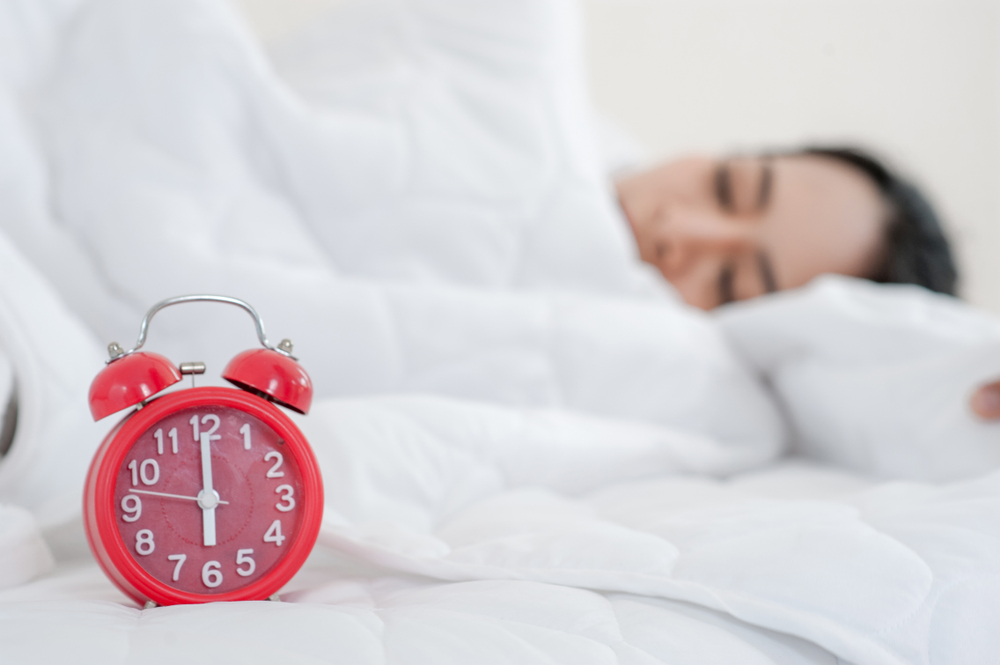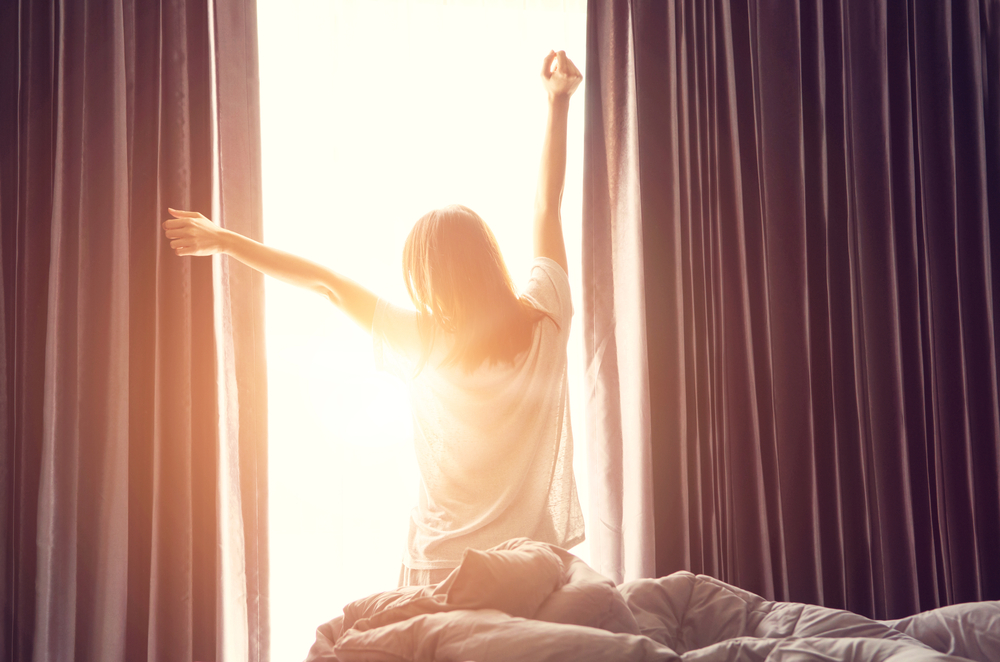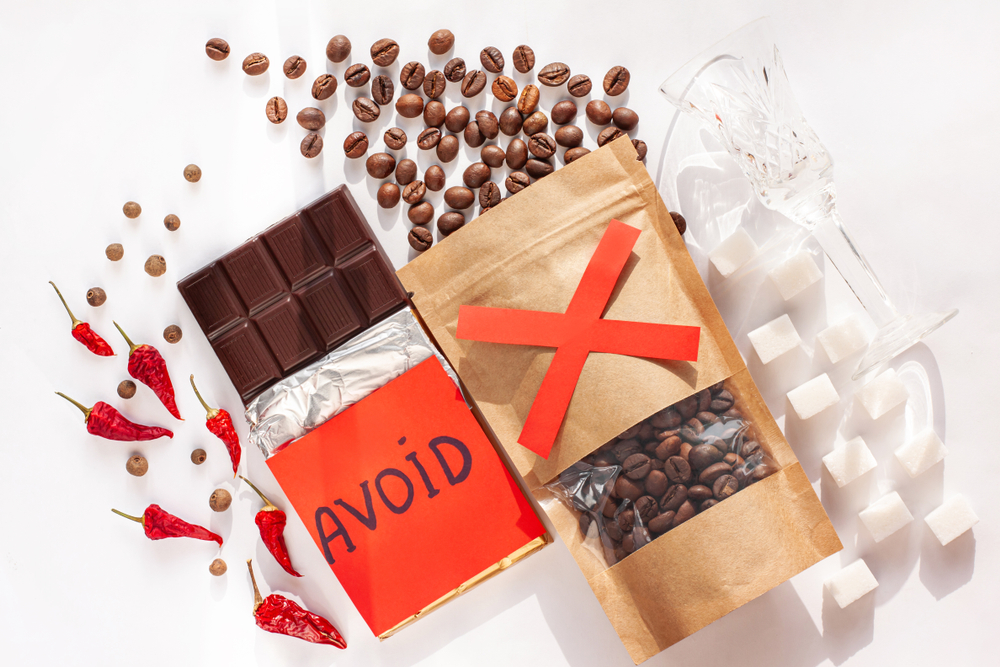Sleep is vital for good health. If you are among the many who find themselves shortchanged of their shut-eye, read on.
Having insufficient sleep, reports sleep scientist Matt Walker, can have adverse effects on our health. According to Walker, who is also author of the book Why We Sleep: Unlocking the Power of Sleep and Dreams, lack of sleep has been linked to Alzheimer’s disease and even cancer.
While a tiny fraction of the population may be able to get by on five to six hours of sleep, most of us require a minimum of seven to eight hours of shut-eye. If you are one of those who lies awake at night counting sheep, here are some tips to have you nodding off like a baby:
 STICK TO A SCHEDULE
STICK TO A SCHEDULE
Go to bed and wake up at the same time every day, including on weekends. This is crucial because the brain expects conditions of regularity. Doing this will improve the quantity and quality of your slumber.
KEEP YOUR BEDROOM DARK AND COOL
The body requires a temperature drop of about 1°C to initiate sleep and to stay asleep. Walker recommends a bedroom temperature of a little over 18°C. The bedroom should also be kept dark, as darkness stimulates the pineal gland to secrete melatonin, which synchronises our sleep-wake cycle with night and day. In the last hour before bed, steer clear of computer screens, tablets and phones, as blue light from these devices may suppress melatonin levels and delay sleepiness.
 HAVE THE RIGHT SUNLIGHT EXPOSURE
HAVE THE RIGHT SUNLIGHT EXPOSURE
If you have problems falling asleep, you should get an hour of exposure to morning sunlight and turn down the lights before bedtime. Daylight is key to regulating daily sleep patterns. Try to spend at least half an hour outdoors in natural sunlight each day. If possible, wake up with the sun or use very bright lights in the morning.
WALK IT OUT
Don’t loll about in bed after you have woken up. If you have woken up and have difficulty dozing off within 25 minutes, get out of bed and do something else in a different bedroom. The reason for this is that, if you stay awake for long periods in bed, your brain will associate the bed as a trigger of wakefulness — and that association needs to be broken, explains Walker. Only return to bed when you are sleepy. By doing that, your brain associates the bed with sound and consistent sleep.

AVOID ALCOHOL AND CAFFEINE
Coffee, colas, certain teas and chocolate contain caffeine, whose effects can take as long as eight hours to wear off fully. A cup of coffee in the late afternoon can therefore make it hard for you to fall asleep at night. So avoid caffeine after 2pm; also avoid nightcaps. Try not to go to bed tipsy, as alcohol leads to fragmented sleep. Nicotine is also a stimulant, often causing smokers to sleep only very lightly. In addition, smokers often wake up too early in the morning because of nicotine withdrawal.
HAVE A WIND-DOWN ROUTINE
Many of us expect to go to bed, switch off the lights, and fall immediately into a deep slumber. Unfortunately, that isn’t how it works for most of us. Sleep as a physiological process is more like landing a plane, describes Walker. It takes time for your body to descend on the firm bedrock of good sleep. In preparation for bedtime, he advises people to disengage from their computer and phone, and try to do something relaxing in the last 20 minutes or half an hour before bed. Find out what works for you; when you have found it, stick to it. If you are suffering from insomnia, sleep apnoea or other sleep-related disorders, these tips may not be helpful — see a doctor about them instead.
APPLY LAVENDER OIL
Lavender oil has a sweet floral herbaceous aroma that has a calming effect. While its calming effect is great for insomniacs, lavender oil has numerous other uses: treatment for itchy scalp, dandruff, eczema, acne, pimples, headache, insect bites, shingles, ringworms, respiratory problem and skin cell regeneration. It can be applied directly on the skin in pure form, or blended with other essential oils. It is also a versatile aromatherapy oil, and can be used in massage, diffuser, air freshener, humidifier, deodorant, laundry, and skincare/cosmetic products. Extracted from the lavender flower and stem, lavender essential oil helps to balance, harmonise and promote the health of our body, mind and spirit. Our AAShop carries a range of essential oils, including lavender. Check it out here.



